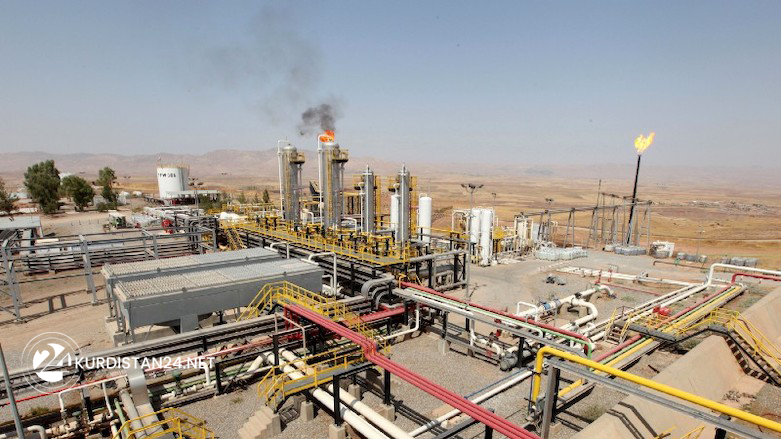Could the Paris ruling subject Kurds to Iraq’s discretion?

Last week (on March 23), the International Court of Arbitration based in Paris informed the Iraqi Federal Government of its final decision regarding the "illegitimate" shipment by the Kurdistan Regional Government (KRG) of oil exports through Turkey's Ceyhan pipeline, a decision that could potentially subject the Kurds to the mercy of Baghdad.
The tribunal ruled that Ankara had breached the 1973 pipeline agreement with Iraq, which required Turkey to comply with certain limitations on the transport of crude oil from Iraq.
While the decision concluded a nine-year long debate between Turkey and Iraq (OPEC's second largest oil producer), a new legal dispute between the three parties could emerge.
Two days after the ruling (on March 25), Turkish authorities stopped the shipment of Iraqi oil at the Ceyhan port at 12:35 pm local time.
Although widely expected, the decision by the Paris-based tribunal is considered a setback for the Kurdish autonomous region of northern Iraq. It seems the Kurds are once again the victims of an international arbitration.
Since the fall of Saddam Hussein’s regime, Iraq’s dictator for more than 30 years, following the U.S.-led invasion of Iraq in 2003, the export and sale of oil revenues has been a point of contention between the Kurdish Regional Government (KRG) and successive Iraqi federal governments.
The relative security in the Kurdistan Region, compared to the rest of Iraq, attracted oil companies from all around the world. At times, more than 40 foreign oil companies were operating in the northern Kurdish region.
Due to poor security in central Iraq, much of the oil pipelines in Kirkuk faced considerable damages. In 2014, the Turkish government, which was not on good terms with Iraq’s Prime Minster Nouri al-Maliki, began importing oil directly from the KRG oil fields through the pipeline constructed near the small village of Fish Khabur to the Turkish port of Ceyhan on the Mediterranean coast.
On May 22, 2014, Turkish authorities announced that the first shipment of Iraqi oil started from the Ceyhan port at 10:00 local time. The next day, the Iraqi Oil Ministry filed a claim at the International Chamber of Commerce (ICC) and Arbitration Court in Paris against the Turkish government and its state-run pipeline operator, BOTAS, over Kurdistan’s unilateral oil shipments to Turkey.
Baghdad’s lawsuit against Ankara in 2014 and the Kurdish referendum for independence in October 2017 could have deterred several companies from investing in the Kurdish region. Yet, Turkish exploration in the Kurdish Region only increased.
Since then, the KRG has exported medium-grade crude oil from the Taq Taq oil field in Erbil (nearly 61 kilometers from Kirkuk) and from Tawke in Duhok through its own independent pipeline that links with the 'inoperable' Ceyhan-Kirkuk pipeline at Fish Khabur, close to Turkey's border, much to Baghdad's chagrin.
The Kurds claim they have the right to sell its own oil under the Iraqi constitution. However, the Federal Government has maintained that Kurdish oil sales are "illegitimate," since shipments were carried out without Iraq’s consent, and an encroachment on the joint Iraqi- Turkish oil agreement of 1973. The Turks, in turn, claimed that a 2010 amendment to the agreement did not differentiate between northern or southern oil fields in the country, and the 1973 oil agreement was still valid and in effect.
It is possible that the court decision to impose a $1.4 billion fine on Turkey, to compensate Iraq for breach of contract for the period 2014 up to 2018, could push Ankara to be more dependent on Moscow for oil imports as an alternative, as Iraq looks to ship its oil through its maritime pipelines in the south. Furthermore, the recent ruling casts a doubt on the Kurdistan gas pipeline project, which was set to be operational in 2025, according to KRG officials.
While the dispute appears to be an economic and legal issue, the reality is that it is fundamentally a political and geopolitical power play, with ramifications still unclear for days or months to come. Turkey’s role in the region, notably in Syria, has made it at loggerheads with the United States, its historical NATO ally. The matter has pushed Turkish President Recep Tayyip Erdogan closer to Russian President Vladimir Putin. The role of Russia’s oil company, Rosneft, could rise in the export of hydrocarbons in the region.
The 2017 Kurdistan referendum again raised the issue of the disputed oil-rich Kirkuk Province. On September 26, 2017, the day after the referendum, Erdogan warned the Kurds with sanctions in case it declared independence.
“It will be over when we close the oil taps, all revenues will vanish, and they will not be able to find food when our trucks stop going to northern Iraq,” Erdogan warned.
Also, the Iranian bombardment of a villa owned by Baz Karim Barzanji, the CEO of KAR Group, in Erbil in March 2022 shows the extent of Iran’s grudge against the KRG and its shipment of oil shipment separate from Baghdad. Oil has always shaped politics since it was discovered in the region nearly a century ago.
Surprisingly, today's decision is reminiscent of the past. On December 16, 1925, the former Ottoman Vilayet of Mosul (largely Kurdish) was designated to the newly formed Arab state of Iraq by an international arbitration court. Notably, Iraq, with the backing of Great Britain—a mandatory authority in Iraq—won its case against Turkey (Ottoman Empire). The following day, Turkey signed the Treaty of Friendship and Neutrality with the Soviet Russia in Paris. The arbitration decision made the Kurds of Iraq a minority, and since then have endured long decades of repression and oppression by Iraqi governments.
In fact, in the aftermath of World War I, the Mosul matter, which dominated world political circles for nine years, reduced the rightful claims of the Kurds as an independent entity to a specially recognized educational and cultural minority.
In 1925, Turkey begrudgingly relinquished its rights to Mosul in return for 10 percent of royalties from Mosul oil sales for 25 years. It seems that today’s court decision for Turkey to compensate Iraq for far less than Iraq requested is not concerning Turkey. Initially, the court was expected to issue a ruling for Ankara to pay $25 billion in compensation to Baghdad.
Today, Erdogan’s tap at Ceyhan is closed. The endless intra-Kurdish rivalry between the two ruling parties—the Kurdistan Democratic Party (PDK) and the Patriotic Union of Kurdistan (PUK)—may well further weaken the Kurdish position in Baghdad in negotiating an alternative mechanism with the federal government, particularly if oil shipments from both the northern and southern oil fields find their way to south of the country.
Although KRG’s Ministry for Natural Resources said the ICC verdict will not affect ongoing talks with Baghdad, the Kurds are not very optimistic. In the Middle East, history could and often repeats itself.
